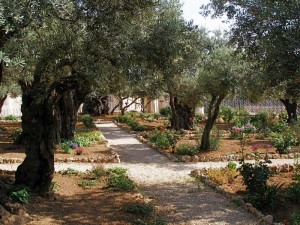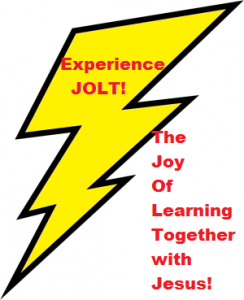====================
A sermon offered by the Rev. Dr. C. Eric Funston on the Fourth Sunday of Easter, April 17, 2016, to the people of St. Paul’s Episcopal Church, Medina, Ohio, where Fr. Funston is rector.
(The lessons for the day are Acts 9:36-43, Psalm 23, Revelation 7:9-17, and St. John 10:22-30. These lessons may be found at The Lectionary Page.)
====================
 There’s a lady who’s sure
There’s a lady who’s sure
All that glitters is gold
And she’s buying a stairway to heaven
When she gets there she knows
If the stores are all closed
With a word she can get what she came for . . .
As I read and pondered both the vision of heaven in John of Patmos’ Revelation and the words of Jesus – “My sheep hear my voice. I know them, and they follow me” (Jn 10:27) – I could not get the words of Led Zeppelin’s Stairway to Heaven out of my head!
The metaphor of God’s Presence – and of our future and eternal life with God – in a place “beyond the sky” may be the oldest metaphor in the human lexicon. It is shared, in some form, by every culture on earth. Our distant ancestors standing at night and gazing at the moon and the stars, watching the sun as “wide he goes through empty heaven with repose” (RL Stevenson, Summer Sun), or facing “the fierce wind, while mid-day lightnings prowl [and] untimely thunders growl” (Wm Wordsworth, Composed During A Storm) conceived of the sky as a place of unspeakable and unimaginable power, the dwelling place of the gods.
But we have been there; we “have slipped the surly bonds of earth, and danced the skies on laughter-silvered wings;” we have “trod the high untrespassed sanctity of space.” (JG Magee, Jr, High Flight) Men have walked on the moon and our machines are even now wondering the surface of Mars; our probes have studied the moons of Jupiter and the rings of Saturn, and then left the planetary system entirely moving on “through corridors sublime, the [realms] of interstellar space and [the passageways] of time.” (And Have the Bright Immensities, The [Episcopal] Hymnal 1982, Hymn 459) We know that beyond the blue dome of our earthly sky is not some otherworldly domain filled with angels and gods, but the physical reality of the Solar System, the Milky Way galaxy, and the limitless universe. And, yet, the metaphor of heaven up there beyond the sky where we may get to go when we die, that metaphor still captures our imaginations and our spirits.
Our lesson from the Book of Revelation today is the second half of a two-part vision shown to John in Chapter 7 of the book; it begins with the words “After this. . . .” – “After what?” we may ask. In the first eight verses of the chapter, John is shown the “servants of our God [marked] with a seal on their foreheads,” an army numbering 144,000 – 12,000 from each of the Twelve Tribes of Israel. These represent what we traditionally call “the church militant,” defined theologically as Christ’s “disciples [who] are pilgrims on earth” (CCC 954), who are “engaged in constant warfare against the world, the flesh and the devil” (Turner, H.M., The Genius and Theory of Methodist Polity, A.M.E. Church, Philadelphia:1885, online). In other words, you and me and every other Christian currently alive, the people doing Jesus’ work on earth right now. Bible commentator Christopher C. Rowland of Oxford University tells us that the number, 144,000, is neither exclusive nor limiting; instead, like all of the numbers and measures in the book, it is a sign of God’s possession and ownership of the earth and its people. John’s numbers are not “a measure of the success of human endeavours.” (NIB, Vol. XII, page 620)
It is after this part of the vision that John then sees the “great multitude that no one could count, from every nation, from all tribes and peoples and languages, standing before the throne and before the Lamb.” (Rev. 7:9) This is “the church triumphant,” those who have died and “are in glory, contemplating ‘in full light, God himself triune and one, exactly as he is.’” (CCC 954) In a word, these are the “saints in heaven.”
John says that “one of the elders” in his vision describes them as those “who have come out of the great ordeal.” (vv 13-14) Early translations use the term “great tribulation” and many have suggested that this refers to some kind of organized persecution that may have been experienced by John’s original audience. But other scholars suggest that “the ‘tribulation’ (thlipsis) of Revelation’s [original] audience was not state-sponsored persecution but rather the social, economic, and religious marginalization of those who refused to participate in the Roman imperial system.” (Barbara Rossing) Thus, the lesson for us “is not that all Christians must shed blood as a form of testimony but rather, all Christians are candidates for tribulation in some form or the other, and in whatever comes their way, it is paramount to follow the Lamb’s way.” (Israel Kamudzandu)
Laurence Hull Stookey, Professor at Wesley Theological Seminary in Washington, D.C, in his book on the liturgical calendar, reminds us that these saints seen by John are not there by their own merit: “Men and women do not by sheer determination and self-discipline become saints. Sanctity is a divine gift. It is indeed the power of the resurrection at work in human lives. * * * We are saints because God’s sanctity is at work in us, not because on our own we have come to great spiritual attainment.” (Calendar: Christ’s Time for the Church, Abingdon Press, Nashville:1996, pp. 141-42)
In terms of Led Zeppelin’s famous song, we cannot build or buy a stairway to heaven on our own; we can only get there by “follow[ing] the Lamb’s way,” by hearing the Shepherd’s voice, being known by him, and following him. But if we listen to the Shepherd, what do we learn about heaven? What do we learn about where and when it is? Is it, as John’s vision suggests, only accessible after death? Is it, as John’s vision and Led Zep’s song and all the myths and legends of heaven suggest someplace beyond the sky?
Here’s an interesting thing . . . look the word “heaven” up in the New Testament and review all the times Jesus uses it and you will notice something fascinating: Jesus never refers to heaven in anything other than the present tense. Heaven is always now, never then. It’s not in the past; it’s not in the future; it’s now. And the other thing you will notice is that it is not far away: “The good news [is that]‘The kingdom of heaven has come near.’” (Mt 10:7) “The kingdom of God has come to you.” (Mt 12:28) “The time is fulfilled, and the kingdom of God has come near.” (Mk 1:15) “Blessed are you who are poor, for yours is the kingdom of God.” (Lk 6:20)
In today’s Gospel lesson, Jesus says, “My sheep hear my voice. I know them, and they follow me.” (Jn 10:27) He’s really just repeating something he said earlier in this same chapter: “I am the good shepherd. I know my own and my own know me, just as the Father knows me and I know the Father.” (Jn. 10:14-15) In John’s Gospel, “knowledge is not a cognitive category, but is a category of relationship.” (O’Day, Gail R., NIB, Vol. IX, p. 670) Those who hear his voice and follow him belong to Jesus and are in relationship with him in the same way that Jesus is in relationship with the Father. This kind of relationship “does not mean to be acquainted; rather, it means to have a living bond.” (Haenchen, Ernst, Commentary on the Gospel of John, Fortress Press, Philadelphia:1984, Vol. 2, p. 48)
And what is that “living bond”? Bishop Charles Grafton, early 20th Century bishop of the Episcopal Diocese of Fond du Lac, answered that in his commentary on the Catechism: “The Holy Spirit is the living bond which unites us in Baptism to Christ’s nature.” (Grafton, Charles C., A Catholic Atlas: Or Digest of Catholic Theology, Longmans Green, New York:1914, Vol. III, p. 112) It is through the action of the Holy Spirit that we are in relationship with Jesus and hear the voice of our Shepherd, or as the great 17th Century bible commentator Matthew Henry put it: “The great Shepherd of the sheep knows all that are his, guards them by his providence, guides them by his Spirit….” (Matthew Henry’s Commentary, online) The Spirit, as Jesus reminded Nicodemus late one night, “blows where it chooses, and you hear the sound of it, but you do not know where it comes from or where it goes.” (Jn 3:8) So we must listen carefully to hear the voice of our Shepherd.
“It is [a] voice which is especially precious in times of struggle and pain. And it is one we sometimes have to work harder to hear in better times when other voices especially seem to drown it out.” (Janet Hunt) Thus, “we tend to hear God’s voice better when we do so in community with others than when we are listening alone.” (Eric Mathis)
Led Zeppelin’s Stairway to Heaven ends with these words:
Dear lady, can you hear the wind blow
And did you know
Your stairway lies on the whispering wind
And as we wind on down the road
Our shadows taller than our soul
There walks a lady we all know
Who shines white light and wants to show
How everything still turns to gold
And if you listen very hard
The tune will come to you at last
When all are one and one is all
To be a rock and not to roll
Our “stairway to heaven” lies on the wind; it depends on the Spirit, who blows where she will and cannot be controlled, but who conveys to us the voice of our Shepherd. “And as we wind on down the road,” as we follow our Shepherd on the path he sets, “all are one and one is all;” we are all in that relationship, that living bond, with God and with one another. And we are not in want. We are cared for and protected, for our Shepherd is also our “strong rock, a castle to keep [us] safe . . . [our] crag and [our] stronghold.” (Ps 31:3) A rock that will not roll.
This is the kingdom of heaven – where we are – on the path with our Shepherd, hearing his voice, and being in relationship with him. We need not buy or build, indeed we cannot buy or build a stairway to get there; we are already here. “The kingdom of God has come to [us].” (Mt 12:28) When the Shepherd speaks and we hear his voice and follow, heaven it is not far away; it is here, always here, never there. Heaven is not in the past, nor is it in the future. It’s always now, never then. It’s here and it’s now.
Let me close by quoting a song about a hundred years older than Stairway to Heaven, a hymn first published in 1883:
Oh, not in far-off realms of space,
the spirit hath its throne;
in every heart, it findeth place,
and waiteth to be known.Thought answereth alone to thought,
and soul with soul hath kin;
the outward God he findeth not
who finds not God within.And if the vision come to thee,
revealed by inward sign,
earth will be full of Deity,
and with his glory shine.Thou shalt not wait for company,
nor pitch thy tent alone:
the indwelling God will go with thee,
and show thee of his own.O gift of gifts, O grace of grace!
That God should condescend
to make thy heart his dwelling-place,
and be thy daily friend.(Hosmer, F.L., The Indwelling God, in Sacred Songs For Public Worship, Savage, M. J., ed., Geo. H. Ellis, Boston:1883, p. 35)
Rejoice! The kingdom of heaven has come to you! No stairway required. Amen.
====================
A request to my readers: I’m trying to build the readership of this blog and I’d very much appreciate your help in doing so. If you find something here that is of value, please share it with others. If you are on Facebook, “like” the posts on your page so others can see them. If you are following me on Twitter, please “retweet” the notices of these meditations. If you have a blog of your own, please include mine in your links (a favor I will gladly reciprocate). Many thanks!
====================
Father Funston is the rector of St. Paul’s Episcopal Church, Medina, Ohio.
 They have had their dinner during which, predicting his death, Jesus has instructed them to share bread and wine again and again in his memory. Jesus has washed their feet. He has given them his New Commandment, “Love one another.” Now, dinner ended, it is time for a stroll in the garden.
They have had their dinner during which, predicting his death, Jesus has instructed them to share bread and wine again and again in his memory. Jesus has washed their feet. He has given them his New Commandment, “Love one another.” Now, dinner ended, it is time for a stroll in the garden. John the Baptizer came, Luke tells us, “proclaiming a baptism of repentance for the forgiveness of sins.” (Lk. 3:3) In today’s Gospel lesson, John tells the crowds who came to him, “Bear fruits worthy of repentance.” (v. 8) Our catechism teaches us that repentance is required of us to receive the Sacraments. With regard to baptism, the catechetical requirement is that we “renounce Satan, repent of our sins, and accept Jesus as our Lord and Savior;” with regard to the Holy Eucharist, that we “examine our lives, repent of our sins, and be in love and charity with all people.” (BCP 858, 860) But John’s admonition and the Catechism’s requirements leave us wondering, “What exactly is ‘repentance’?”
John the Baptizer came, Luke tells us, “proclaiming a baptism of repentance for the forgiveness of sins.” (Lk. 3:3) In today’s Gospel lesson, John tells the crowds who came to him, “Bear fruits worthy of repentance.” (v. 8) Our catechism teaches us that repentance is required of us to receive the Sacraments. With regard to baptism, the catechetical requirement is that we “renounce Satan, repent of our sins, and accept Jesus as our Lord and Savior;” with regard to the Holy Eucharist, that we “examine our lives, repent of our sins, and be in love and charity with all people.” (BCP 858, 860) But John’s admonition and the Catechism’s requirements leave us wondering, “What exactly is ‘repentance’?”  Perhaps you’ve heard about the recent advertisement that the Church of England wants to run in cinemas in the United Kingdom. It’s part of a campaign which includes the Church’s new website called
Perhaps you’ve heard about the recent advertisement that the Church of England wants to run in cinemas in the United Kingdom. It’s part of a campaign which includes the Church’s new website called  This morning, after I took the dog for her walk and poured a cup of coffee, I turned on my computer and found a message from my friend Melania, who is from Naples but is currently working in Spain. We were students together in Ireland. This is her message:
This morning, after I took the dog for her walk and poured a cup of coffee, I turned on my computer and found a message from my friend Melania, who is from Naples but is currently working in Spain. We were students together in Ireland. This is her message:  The kingdom of God, of which today we celebrate Christ as king, is not a kingdom of security; it is a kingdom of peace, dangerous peace.
The kingdom of God, of which today we celebrate Christ as king, is not a kingdom of security; it is a kingdom of peace, dangerous peace. When you sit there in the pew and I stand here in the pulpit and say to you “The Bible says this . . . .” or “The Church teaches that . . . .”, how do you know that I’m telling you the truth? When the writer of the Letter to Hebrews admonishes you to “approach [the sanctuary of God] with a true heart in full assurance of faith,” how do you have that assurance? When that writer, again, encourages you to “hold fast to the confession of our hope without wavering,” how do you know what that confession is? And when Jesus commands you, “Beware that no one leads you astray,” how do you make the judgment to exercise that caution?
When you sit there in the pew and I stand here in the pulpit and say to you “The Bible says this . . . .” or “The Church teaches that . . . .”, how do you know that I’m telling you the truth? When the writer of the Letter to Hebrews admonishes you to “approach [the sanctuary of God] with a true heart in full assurance of faith,” how do you have that assurance? When that writer, again, encourages you to “hold fast to the confession of our hope without wavering,” how do you know what that confession is? And when Jesus commands you, “Beware that no one leads you astray,” how do you make the judgment to exercise that caution?

